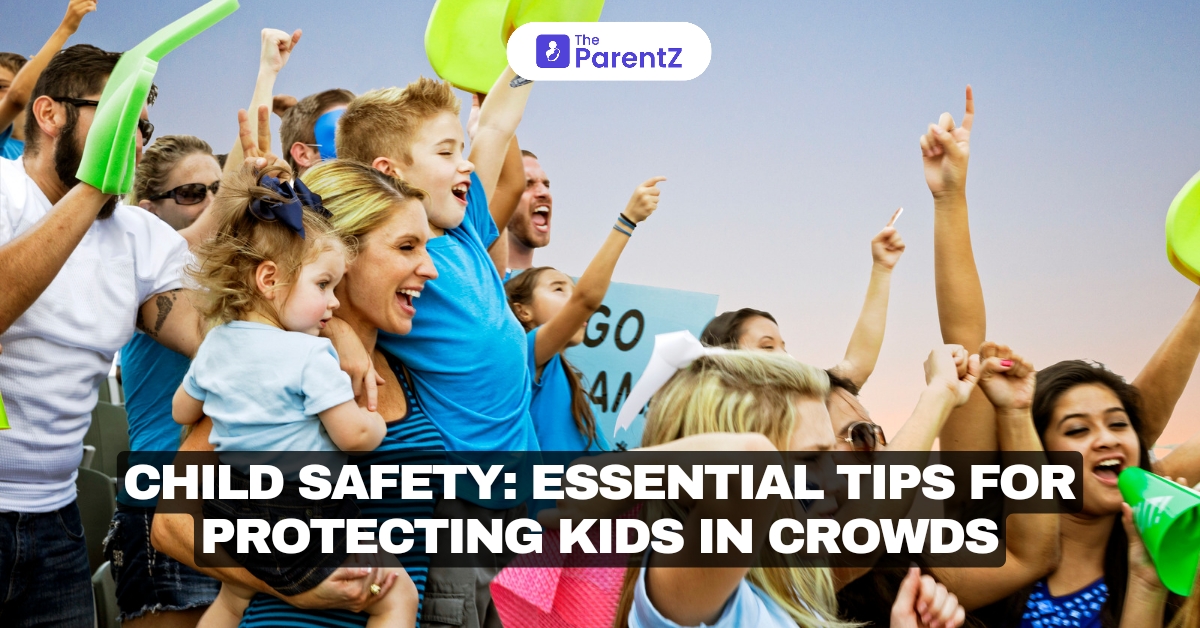The fear of losing a child in a crowded space is a profound concern for parents. The bustling noise, the sea of unfamiliar faces, and the overwhelming chaos can quickly transform a joyful outing into a nightmare. It's a scenario that no parent wishes to imagine, yet it's a reality that can occur in the blink of an eye.
As crowds become an inevitable part of family outings—festivals, amusement parks, or even shopping trips—understanding child safety in these situations is essential. This blog will introduce you to some practical strategies that you can enforce to protect your children during crowded events and what to teach them to ensure their safety.
Preparing Before You Go
Dress for Visibility
One of the easiest yet most effective safety measures is to ensure that your child is dressed in bright, easily recognizable clothing. Fluorescent colors or matching outfits for the family can make it significantly easier to spot children in a crowd. This proactive approach not only aids in visibility but also helps children identify their parents quickly.
Establish a Meeting Point
Before entering a crowded area, agree on a specific meeting spot in case anyone gets separated. This location should be prominent and easy to find, such as a landmark or a specific booth. Ensure that your child understands the importance of returning to this spot if they cannot see you.
Use Identification Strategies
Consider writing your phone number on your child's arm or using temporary tattoos with contact information. This method can be invaluable if your child gets lost, as it provides a quick way for others to help reunite you. Additionally, taking a recent photo of your child before heading out can be a crucial tool for identification if they wander off.
Teaching Children About Safety
Communication is Key
Teaching children their full names, addresses, and phone numbers is vital. Make this learning process fun by turning it into a song or a game. Regular practice will help them remember this information even in stressful situations.
Understanding Safe Strangers
Teach your children to identify safe adults they can approach if they feel lost or scared. Point out uniformed personnel such as police officers, security guards, or store employees. This knowledge empowers children to seek help from trusted individuals rather than just adults.
The Importance of Staying Put
Instruct your children to stay in one place if they become separated from you. This is particularly important for younger children who may panic and run. Reinforce this message by explaining that you will always come back to find them.
Navigating Crowds: What to Do
Stay Alert and Close
As a parent, maintaining awareness of your surroundings is crucial. Keep your children within arm's reach, especially in tightly packed areas. Use the "two big steps" rule, which encourages children to always remain no more than two steps away from you.
Avoid Distractions
While engaging with your phone or other distractions may be tempting, staying focused on your children is vital. Avoid letting them wander off to explore alone, even if they seem old enough to do so. Always accompany them to restrooms or other areas where they might be out of sight.
Practice Emergency Scenarios
Role-playing various scenarios can significantly enhance a child's preparedness. Discuss what they should do if they get lost, including how to approach a safe adult and what to say. Regularly revisiting these discussions will help reinforce their importance.
What to Avoid
Don't Panic
If you do find yourself separated from your child, remain calm. Panic clouds judgment and leads to hasty decisions. Immediately call for help, alert security, and begin searching the area systematically. Remember to provide a detailed description of your child, including what they wore and any distinguishing features.
Avoid Confrontations
If you notice anyone behaving skeptically around your child, do not confront them directly. Instead, alert security personnel or law enforcement. Your priority should be to ensure your child's safety without escalating the situation unnecessarily.
Conclusion
Child safety in crowded environments is a serious concern that requires preparation, awareness, and communication. By implementing these practical strategies, you can seriously reduce the risks that come with large crowds. Teaching children about safety not only empowers them but also provides peace of mind for parents. As we navigate the complexities of public spaces, let us prioritize our children's safety, ensuring that every outing remains a joyful experience rather than a source of anxiety.





Be the first one to comment on this story.